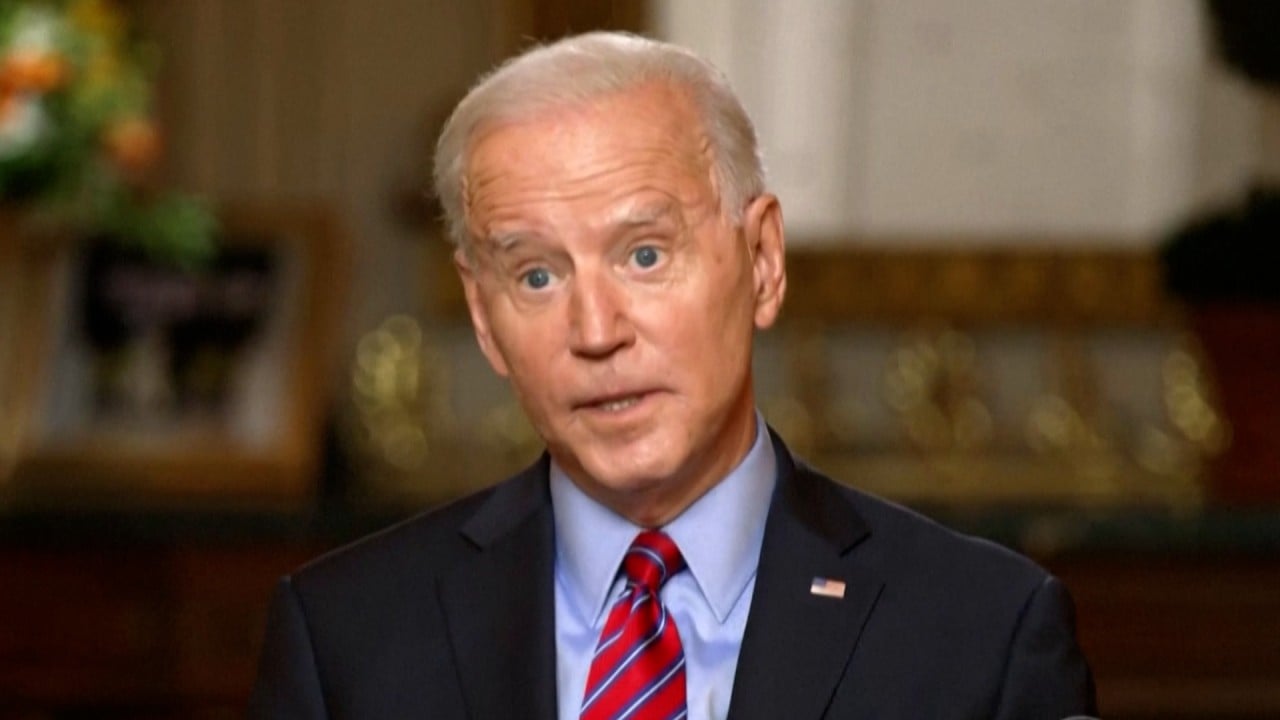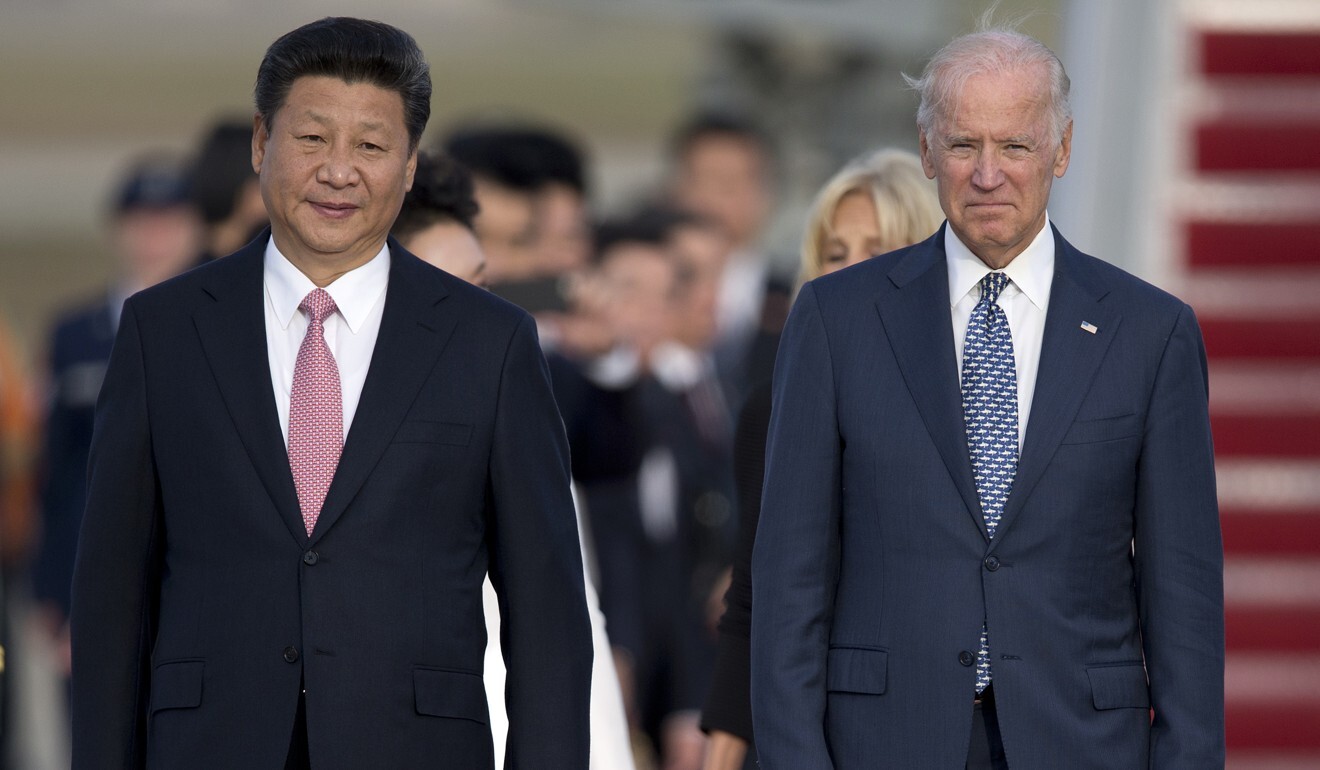
US-China relations: Joe Biden has ‘no reason not to call’ Xi Jinping – but setting it up is proving harder than some expected
- Biden told CBS on Sunday that Xi has been ‘sending signals’ and knows he will not follow Donald Trump’s approach
- But tensions are likely to continue between the two countries, and one Chinese government adviser says both leaders know that ‘things have changed a lot’
China and the US are still searching for a right opportunity for their presidents to have their first phone conversation since Joe Biden’s election victory as the two sides look to reshape their complicated relationship.
But both sides have kept expectations low and few believe that the call, if it happens, will herald a quick turnaround.
Talks on setting up the conversation have proved more difficult than some people initially anticipated, according to Chinese observers, reflecting the huge gaps that are driving the world’s two largest economies further apart.
In an interview with CBS that was aired on Sunday, Biden said they still “haven’t had occasion to talk to one another yet”, but he added that “there’s no reason not to call” Xi Jinping.

01:08
US President Joe Biden foresees ‘extreme competition’ with China
It is understood that both sides initially considered Lunar New Year, which is less than a week away, as a possible early opportunity to break the ice, but the chances of that happening is now fading, according to a source on the Chinese side.
But the misalignment between the two sides remains huge. Blinken said the US will stand up for human rights and “hold Beijing accountable for its efforts to threaten stability in the Indo-Pacific” while Yang said the Taiwan issue is the most sensitive for China and that Washington should not interfere with its domestic affairs in Tibet, Xinjiang and Hong Kong.
On Monday the Chinese state news agency Xinhua published a commentary that said “candid and constructive” dialogue was needed to better understand each side’s strategic intentions and rebuilt trust.
It said it was time that Washington followed the advice of Henry Kissinger, who helped establish diplomatic relations between the two countries in the 1970s and said they should “merge their efforts not to shake the world, but to build it”.
Biden said he knows Xi “pretty well” after eight years as Barack Obama’s vice-president. “I’ve probably spent more time with Xi Jinping, I’m told, than any world leader has,” he said in the CBS interview.
The new president said his approach to China will be different from Donald Trump’s and Xi knows that because he’s been “sending signals as well”.
“We need not have a conflict, but there’s going to be extreme competition,” Biden said. “I’m not going to do it the way Trump did and we are going to focus on the international rules of the road”.
A Chinese government adviser, who required anonymity due to the sensitivity of the issue, said direct contact would happen sooner or later, but the more important issue was whether it would have an impact on the relationship.

“Both of the two leaders know that each other has changed a lot and become more hostile over the past few years,” said the adviser.
Before the new administration took office, it indicated there would be no rush to shape its China policy and would take the time to review Trump’s arrangements.
It indicated it would stop the name-calling and rhetorical attacks, but also strengthen ties with like minded-countries to bolster its position before engaging substantively with Beijing.
Observers said Beijing should be prepared to counter further pressure from the Biden administration.
Ding Yifan, a senior fellow with the Development Research Centre of the State Council, said any good personal relationship forged in the past will have a very limited impact on the two countries’ overall relationship.
“Biden has to make compromises with anti-China forces in the US,” he said. “It is not a good timing now for Biden to make a phone call given that the US is still struggling with the pandemic while Beijing has brought it under control.
“But his interview with CBS sent a wise and rational signal that the US wants to avoid a hot war with China while competition in trade and tech fronts will continue.”
Lu Xiang, a senior fellow specialising in US studies at the Chinese Academy of Social Sciences, said the timing of the call would not be crucial in shaping a relationship that has “entered unchartered waters”.
“We don’t shy away from competition, and both sides should work out rules for competition”, he said. “What we want to see from Biden is a big picture, a big idea of how he thinks about the bilateral relations.
“If we say the Trump era witnessed strategic disorder in America’s China policy, then the first 100 days for Biden will be the period of strategic confusion. Let him have some time to think it over.”
Additional reporting by Mark Maginer and Robert Delaney



